Oscar Pistorius: Was it right to televise the trial?
- Published
In her verdict the judge singled out the issue of witnesses being influenced by watching the trial on television, as Andrew Harding reports
The televising of Oscar Pistorius's murder trial has done wonders for Professor James Grant's law class at Wits University in Johannesburg.
"If you were Oscar ... " said the professor, striding around the lecture theatre on a recent morning, and introducing yet another animated discussion on the athlete's defence strategy with more than a hundred enthusiastic students who have been following the case on a daily basis, and sometimes writing it up for homework.
"It's given me a wonderful opportunity to illustrate the material I have to teach. I refer to the trial almost every day. The Pistorius trial broadcast has shown us what we can do. It gives us something to aspire to," said Professor Grant afterwards in a crowded corridor.
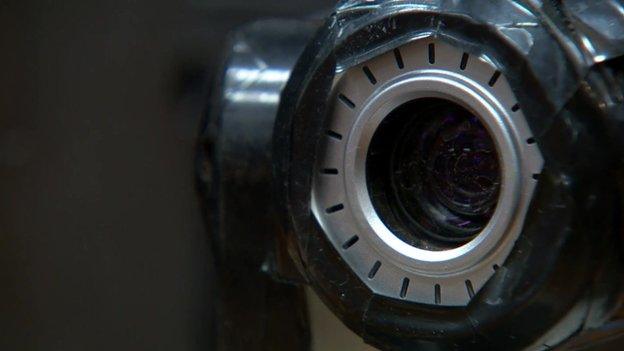
The presence of cameras in the courtroom has generally been welcome
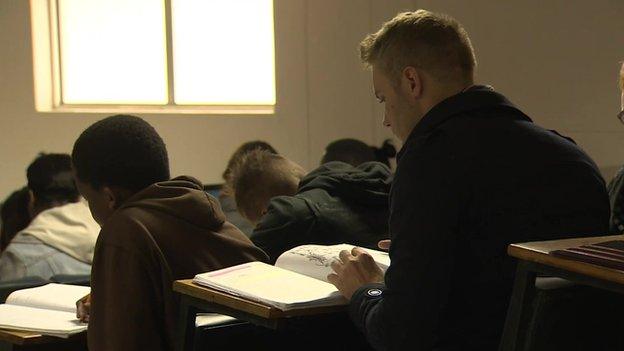
Students of law at Wits University in Johannesburg studied the procedures regularly
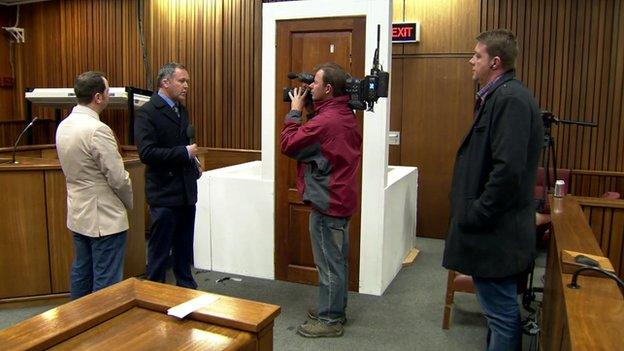
An Oscar Pistorius channel has been up and running
He quickly conceded that South Africa's criminal justice system is "under strain".
"But it's been terrific to show the world what it can achieve at its best."
Although public interest in the Pistorius trial seems to have waned discernibly since the drama of the athlete's own tearful performance in the witness box, the notion that televising it would be a useful educational tool - and not merely salacious entertainment - for a young democracy has gained broad support.
"It was good for South African justice, and good that the public could see what happens in court. It should be extended. The cameras need to come to the lower courts, to go out into the [countryside] to see if they're doing their jobs properly," said lawyer William Booth.
But have the cameras and microphones been good for justice, and for Oscar Pistorius?
In her verdict, Judge Thokozile Masipa raised a serious concern - that witnesses had been influenced by watching or hearing others giving evidence before them.
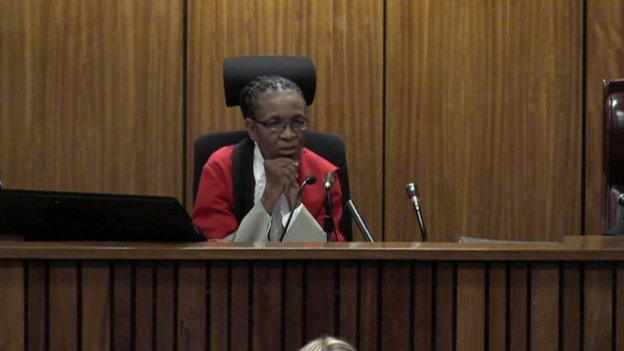
Judge Thokozile Masipa was concerned at the impact of live coverage on the judicial process
Strain
"Almost every witness who was asked after cross-examination if he or she had followed the news relating to the events of 14 February 2013 responded positively. I am of the view that the probability is that some witnesses failed to separate what they knew personally from what they had heard from other people or what they'd gathered from the media," she said.
Oscar Pistorius's defence team had always argued vigorously against the cameras' presence in court, and they have since claimed that several potentially key defence witnesses were scared off - a suggestion rejected by the prosecution and some legal analysts.
Another question is whether the live coverage added to the defendant's emotional stress - not least during his lengthy cross-examination.
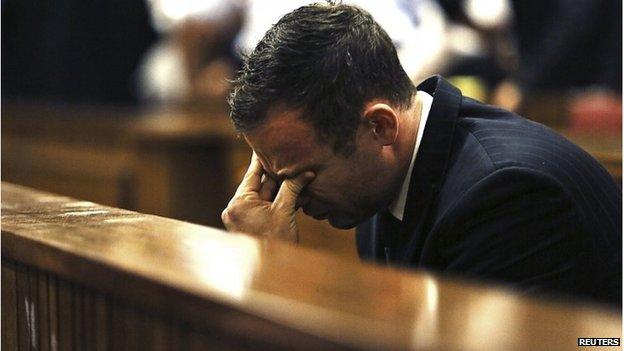
Some lawyers have argued that the cameras put the athlete under unnecessary strain
"There's good and bad. The bad is the question of whether Oscar's fair trial rights have been infringed. It puts strain on any witness and his team may well point to this in applying for appeal," said James Grant.
"I think it's an enormous stress [for Pistorius] and goes to the unfairness of the trial," agreed another prominent South African lawyer, Jeremy Gauntlett. He argued that the cameras may also have intimidated Judge Masipa, and had the opposite effect on prosecutor Gerrie Nel.
"There has been a considerable measure of playing to the gallery, and a level of cross-examination that has not been cross-examination. To badger, at times even to taunt particular witnesses, including Mr Pistorius... seems to me inappropriate. [The presence of cameras] "has had that kind of influence," said Mr Gauntlett.
The cameras were reinstalled in courtroom D at Pretoria's High Court earlier this week, in preparation for the verdict - capturing his tears as he was cleared of murder, but found guilty of culpable homicide.
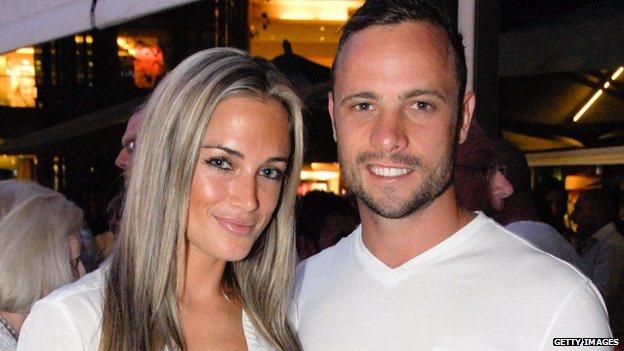
Reeva Steenkamp (left) was shot dead by her boyfriend Oscar Pistorius on Valentine's Day 2013